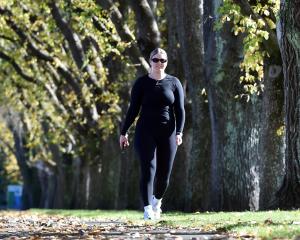
University of Otago researcher and Dunedin Hospital paediatric endocrinologist Prof Ben Wheeler said the survey had only been going for less than a month, but it had already found 12 babies with the condition — four from Otago and Southland.
"We think of it as a historic disease, a bit like scurvy.
"But we are seeing quite a few cases locally and New Zealand-wide, so we have commenced a study over the last two months, trying to put a number on how many there are out there."
Rickets is a preventable bone disease that causes soft and weakened bones in infants and young children.
Symptoms include seizures, deformities of the chest and ribs, bowleggedness, skull deformity, increased risk of spontaneous broken bones, teeth failing to form and deformed teeth, soft tooth enamel, painful bones, muscle weakness, cramps and spasms and slowed growth and development and sometimes cardiac problems can occur.
Prof Wheeler said rickets was usually caused by a lack of vitamin D, calcium or phosphorus.
Vitamin D was essential for the formation of strong and healthy bones in children.
He said vitamin D deficiency could occur as a result of having dark skin, a lack of exposure of the skin to sunlight and nutritional deficiencies.
Children aged from 0-3 in the South Island were particularly at risk because there was less sunshine.
"But it’s super easily prevented, just by taking vitamin D."
Treatment options included improved sunlight exposure and diet and vitamin D supplements.
In 2015, an earlier survey found there were about 60 babies in New Zealand with rickets, which prompted the Ministry of Health to implement guidelines recommending daily vitamin D supplements to all breastfed infants for the first 12 months of their life.
A drop of vitamin D supplement a day, for the first 12 months, is all it takes.
However, Prof Wheeler said he was not sure how well known that advice was.
"The reason we are seeing cases of rickets again is that people are not following, for whatever reason, the national recommendation to have vitamin D every day.
"We’ve talked to the parents of the 12 notified cases, and none of them have been offered or taken vitamin D.
"Sometimes they’ve even asked for it and not been given it.
"It really is important that people in the community know that this is happening, that this condition is there and they are at risk."












